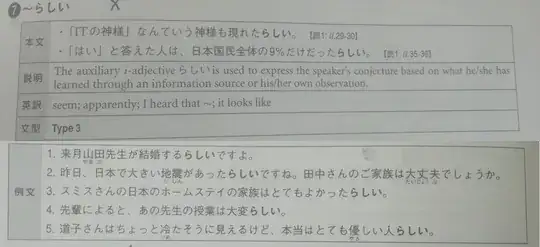My understanding of this matter is:
- [masu-stem] + そうだ is used to tell an associative guess based on a sensory input from the target
- [dictionary-form] + らしい is used to tell a conclusion from evidence, without direct contact with the target
We use ~しそうだ when we run into a situation that we can naturally associate an apparent scene we sense with another related probable event. For example, seeing a ball on the edge, we can imagine it falling (落ちそう); hearing a creak, we can imagine the machine is worn out inside (壊れそう); smelling a flavor, we can imagine a delicious taste (おいしそう). But whether it really happens, is unsure.
~らしい is more like a logical inference from a concrete evidence. When you see a kennel by the door, you can conclude that this house has a dog (飼っているらしい; but you didn't sense the dog). When you see a lot of people standing in line, you can conclude that this restaurant is delicious (おいしいらしい; but you didn't see they served food). When the speaker use it, it is sure enough for them not to require another direct confirmation, unless the evidence has an unsuspected flaw (say, the doghouse is what former residents left there). Actually, I feel that this ~らしい is more naturally reworded to ~に違いない "it must be; I bet".
Of course, the standard of what is naturally (automatically) associative and what only inferable by reasoning may vary. That is the point where their distinction starts to blur. But generally, the nearer you get to the object you judge, the more likely しそうだ is used; the more distant from your sensory range, the more らしい.
雨が降るらしい
This example does not sound having much place to use. If it means it is going to rain, someone must have an indirect evidence that accurately predicts rains. Maybe it can be used in a place a west wind is always precursor of rain, or when a traveler walking on an arid land finds a trace of river flow, and thinks that "it can rain here".
According to this paper reports that "conjecture" らしい has only one tenth frequency compared to "hearsay" らしい. I do have an impression that it is an extension of "hearsay" らしい, replaced a person with a physical evidence.
